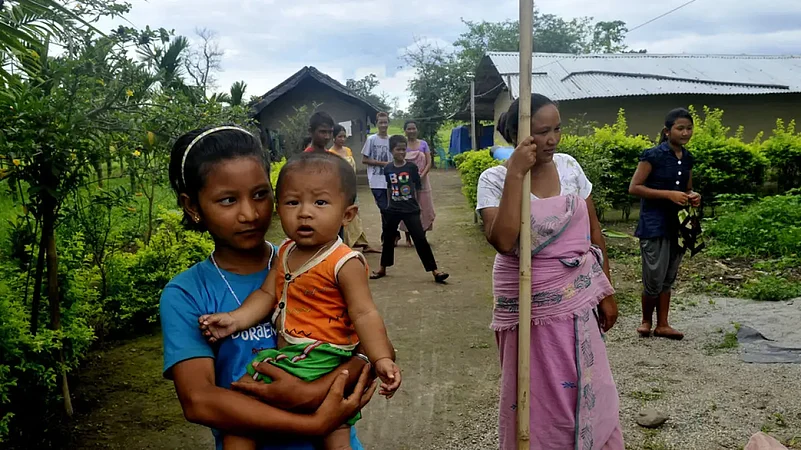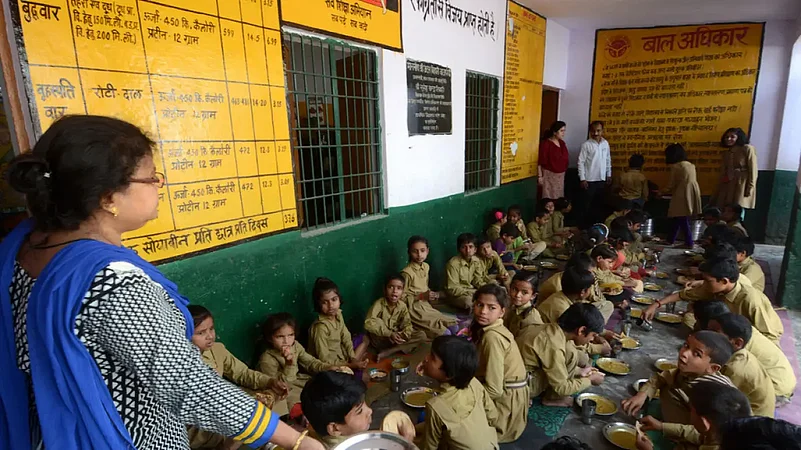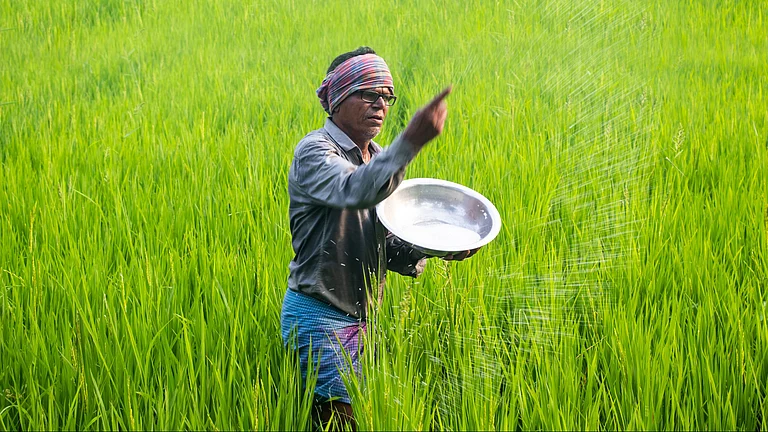Did you know that just like the Earth’s health affects our well-being; our health also has an impact on the Earth? One of the ways that happens is through our food or diet. In fact, this year’s theme for the World Health Day is also on similar lines -- ‘Our Planet, Our Health’.
A research done by the University of Leeds last year concluded that healthy diets have lower Greenhouse Gas (GHG) emissions. The study analysed over 40,000 food items, and suggested that unhealthy foods are responsible for nearly a quarter of diet-related GHG emissions. While a third of diet-related emissions came from meat items, 15 per cent came from drinks, 14 per cent came from dairy and eight per cent came from cakes, biscuits and confectionery. The research was published in the science journal PLOS One.
Highly processed foods and beverages therefore are doubly dangerous -- they make us sick and they lead to GHG emissions. But it doesn’t have to be that way, feel experts. Food can be sustainable and nutritious at the same time, they say. The recently released Intergovernmental Panel on Climate Change (IPCC) report also pointed out the impacts of food production on the environment and underlined behavioural and lifestyle changes as one of the ways to counter it.

Another study – a review of eight prior published studies -- led by Dr. S Anitha, Senior Scientist, Nutrition, at the International Crops Research Institute of the Semi-Arid Tropics (ICRISAT), examined the nutritional benefits of millets and found out that they can be crucial in combating malnutrition.
Millets have been described as smart crops because of their nutritional qualities and also because they don’t need much water to grow. Plus, they are hardy and don’t need much fertilisers. Different kinds of millets contain varying percentages of nutrients, but in general they are loaded with calcium, iron, beta-carotene and also dietary fibre.
A study by the Centre for Study of Science, Technology and Policy, Bengaluru, analysed that switching from rice and wheat to millets can save the country 50 million tonnes of GHG emissions and 300 billion cubic metres of water every year by 2050.
Eat seasonal and local
“Nature provides us with seasonal vegetables and fruits -- in winter, we get yields such as mustard and radish, which help us keep our body warm, whereas in summers we get cooling, water-rich vegetables such as cucumber. Today, because of processing, everything is available all the year round. We are neither eating seasonal, nor local. On top of that we preserve them for longer periods and harm the environment in return,” says Prabhakar Rao, a seed keeper and a promoter of
chemical-free organic farming. He runs Hariyalee Seeds, a family run farm, which curates species of endangered and heirloom seeds from all over the world.
A Sustainable diet
“Sustainable diets have lesser environmental impact, which means they protect biodiversity, optimise resources, are safe, accessible, and more importantly, nutritional enough in terms of quantity and quality. Simply put, this way of eating meets society's needs, while protecting and preserving the environment,” elaborates dietician Kripa Jalan.
One way of achieving this could be by prioritising plants, she suggests. “Sustainable diet doesn’t mean you forego meat completely, it just means that your diet must comprise more of plant-based foods like fruits and vegetables. Treat animal-based products like a side dish rather than the main course. Meat production is a substantial contributor to GHG emissions – beef production primarily – and the environmental burden deepens as raising and transporting livestock also requires more food, water, land and energy than plants,” she says.
Don’t blame it all on dairy and meat
While the role of dairy and animal-source food is often under the scanner for its contribution to GHGs, experts like Dr. Sylvia Karpagam bring out nuances in the larger picture.
“There is also a need to look beyond grains to self-sufficiency in milk/dairy, fish, poultry, eggs, meat, vegetables, pulses, oils/fats and bring these into food subsidy programmes and schemes. There is a need for market regulation to ensure that it is not exploitative. Most of the livestock farming in India can be made more sustainable with support,” she argues. She further says that fortification of grain is pushed as a solution to nutrient deficiencies but it comes with a corporate agenda and is not a sustainable, climate-friendly option. It requires pre-mixes to be flown in from other countries and needs all locally grown food to be handed over to corporates for fortification before it is sold back to communities at marked up prices.
Next time you eat healthy, remember it’s not just for you.
Poshan 2.0: #ReachEachChild
The Poshan 2.0: #ReachEachChild initiative by the Outlook media group and Reckitt aims to bring about a transformative change in sustainability and to rally behind the cause of adequate nutrition in the country, in line with the government’s Poshan agenda.
First conceptualized in 2019 as the first of its kind initiative in the field of nutrition by any media group, the Outlook Poshan Awards, which was presented by the Vice President of India, Shri Venkaiah Naidu, put the spotlight on the importance of ensuring good nutrition in the country and unleashing India’s human capital potential, growth, and productivity.
Our partner Reckitt is also committed to improve the quality of life of people the world over with its range of health, hygiene and nutrition products. Initiatives led by Reckitt have already made significant impact in Maharashtra’s Amravati and Nandurbar districts.
On the occasion of World Health Day, 7th April, this year, Outlook Poshan 2.0 in its new avatar brings together thought leaders from across the globe to recognise the country’s achievements in the nutrition space and deliberate on the way forward to address remaining nutrition related challenges for India. We are taking the nutrition sensitive approach and bringing to our readers thought columns from experts in the fields of water, sanitation, hygiene and women’s empowerment, begging with an inspiring address by the Vice President of India, Shri Venkaiah Naidu.
For more, visit Outlook Poshan































